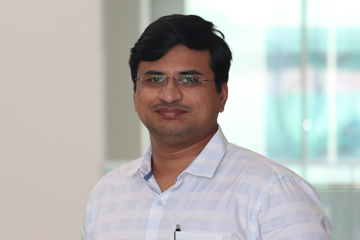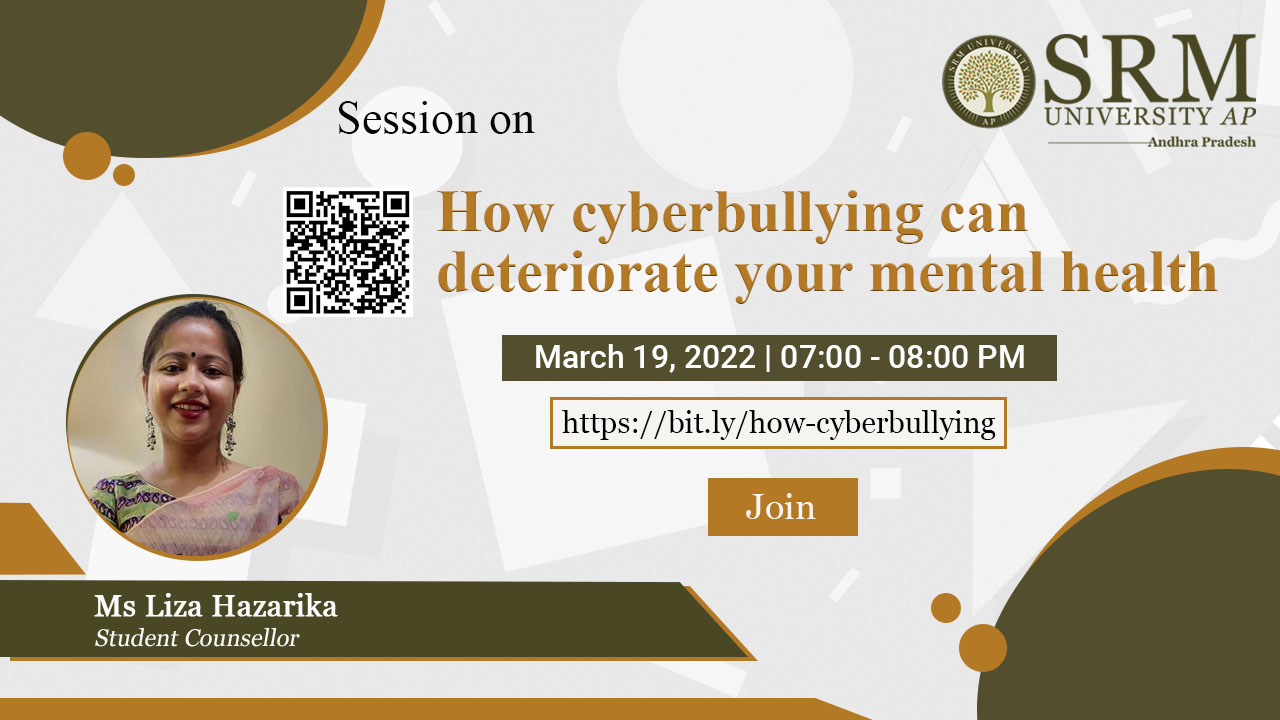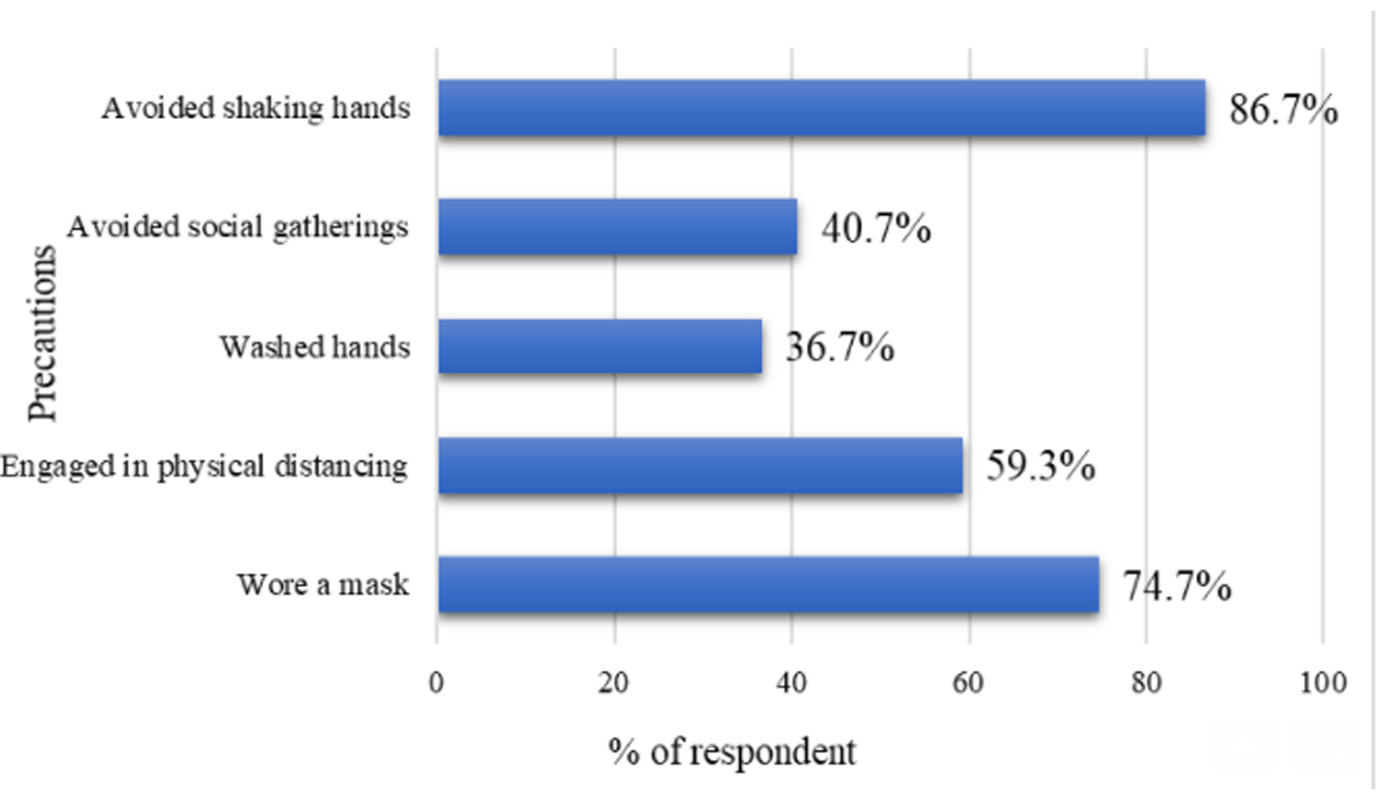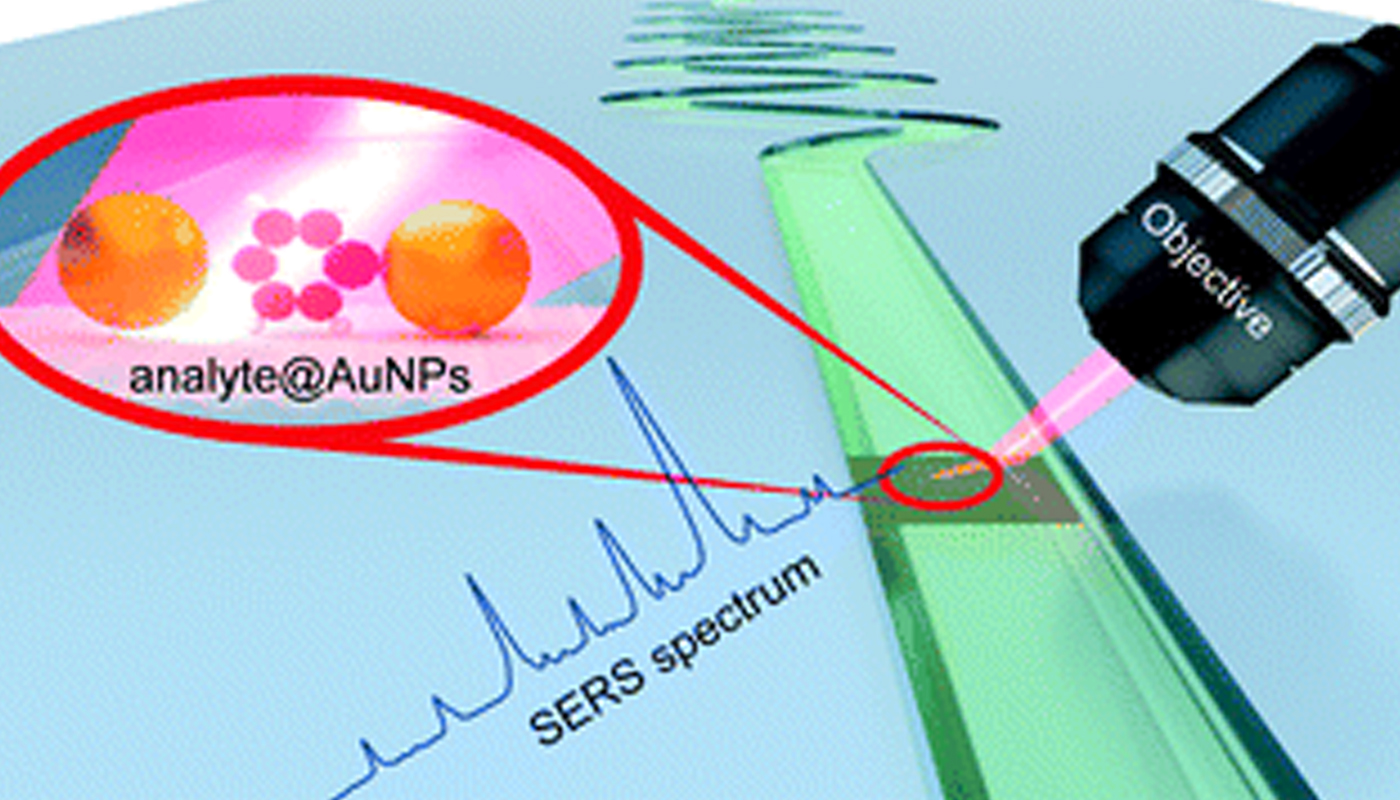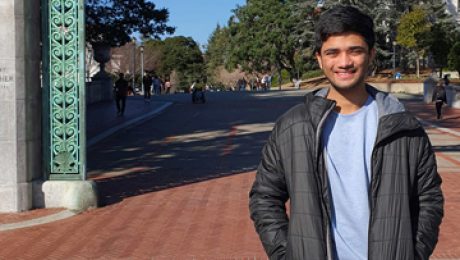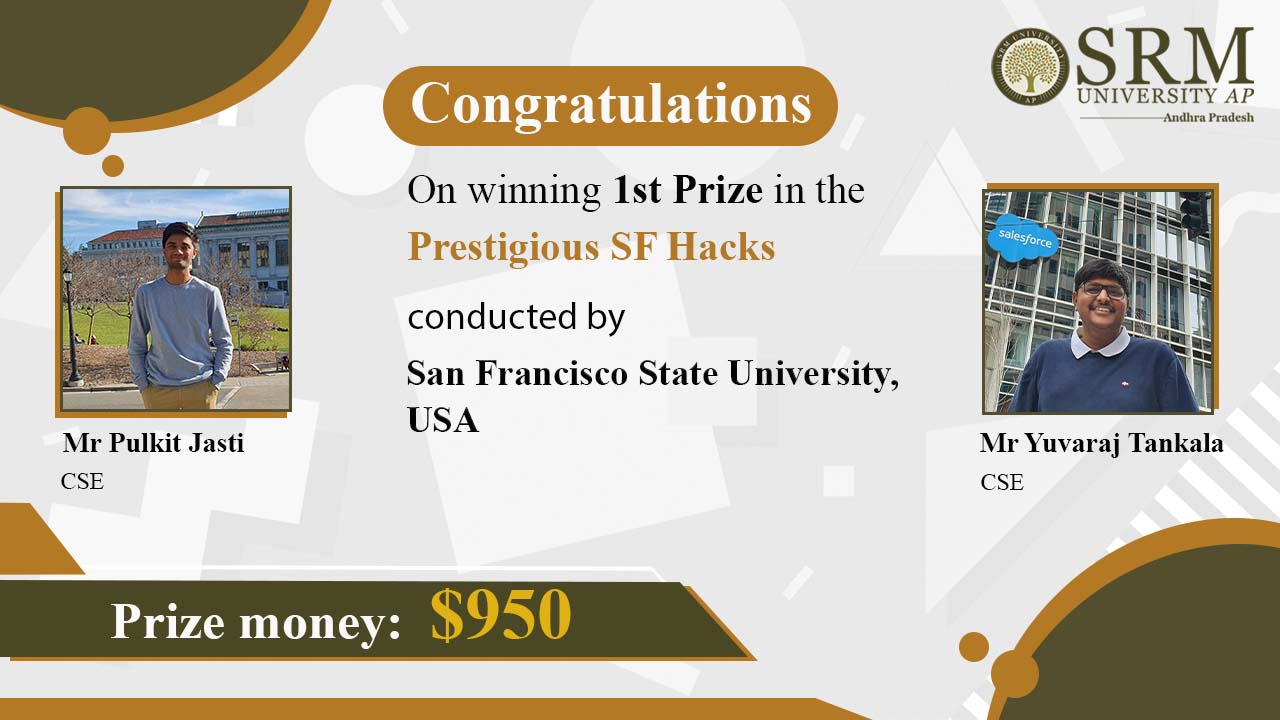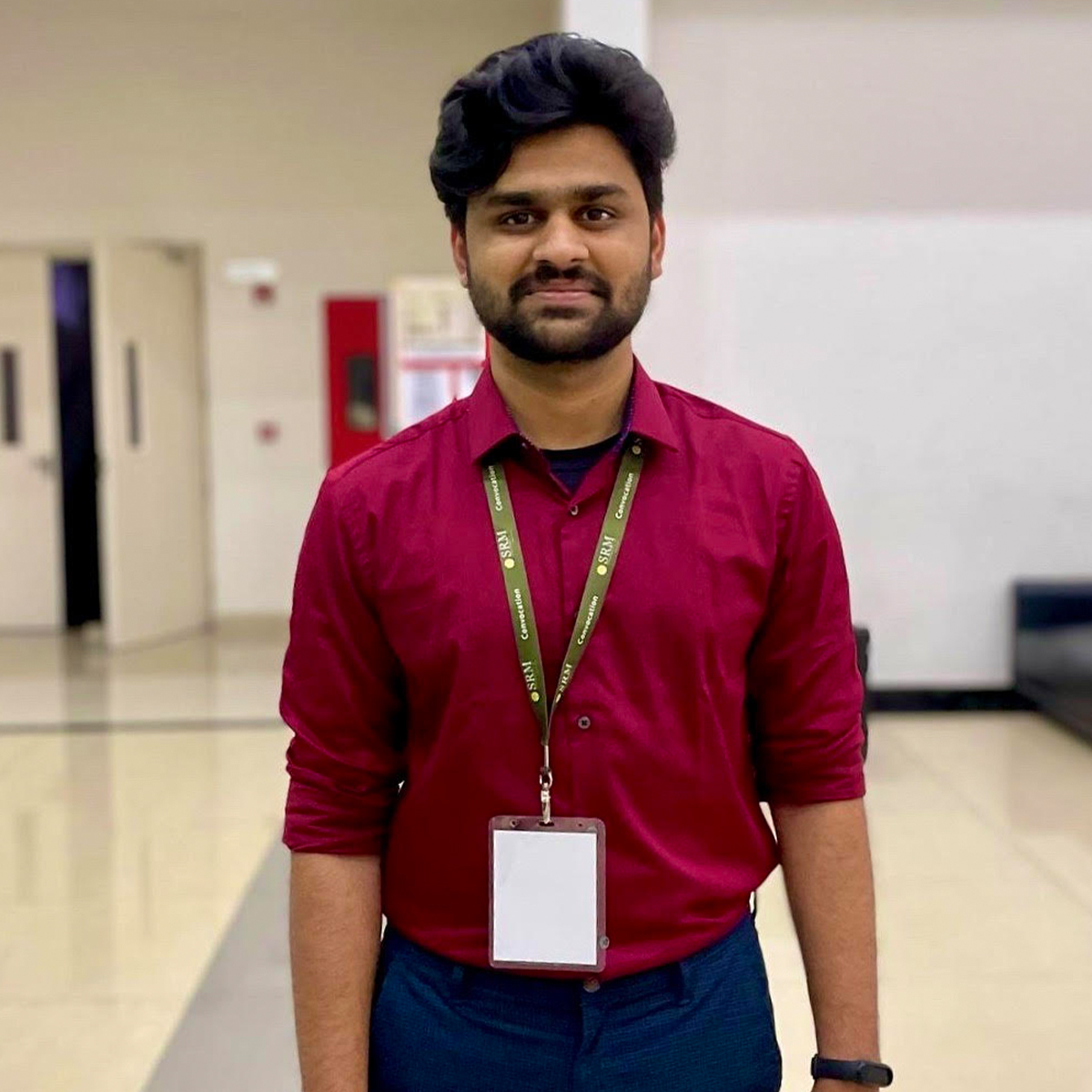Dr Sujith Kalluri is honoured with “ICTSGS Service Award for Sustainable Development Goals (SDGs)”
Dr Sujith Kalluri from the Department of Electronics and Communication Engineering was honoured with the “ICTSGS Service Award for Sustainable Development Goals (SDGs)” in the recently held First International Conference on Technologies for Smart Green Connected Society 2021. The conference was jointly organised by the Electrochemical Society, USA, Yamagata University, Japan, and United Nations FAO, Italy. The award was presented for Dr Kalluri’s contributions in organising the international conference with the relevant audience. Dr Kalluri would further take up the role of Guest Editor in some of the prestigious peer-reviewed international journals.
The honour presented to Dr Kalluri further leads to research and professional collaboration with SPAST Foundation, Yamagata University Japan, and The Electrochemical Society USA.
- Published in ECE NEWS, Faculty Achievements, News
Cyberbullying and its mental impact
Cyberbullying has become an everyday menace facing the present society. The effects of such virtual world threats can be unfathomable. As an increasing number of people continue to fall prey to such harassment, it is a compelling necessity to raise caution against cyberbullying and spread awareness of the mental trauma it culminates in.
The Department of Student Affairs is bringing forth a productive session, How cyberbullying can deteriorate your mental health? with Ms Liza Hazarika to alert students on the psychological impact associated with cyberbullying and how to effectively deal with it.
Date: March 19, 2022
Time: 7.00 pm to 8.00 pm IST
Tune in for the webinar and learn to tackle cyberbullying without harming your mental peace.
- Published in Events, Students Affairs Events
Heartfulness Education Trust collaborates with SRM University-AP
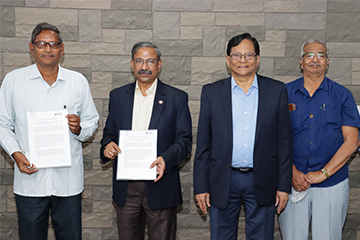 In a meeting held at SRM University-AP campus, the Heartfulness Education Trust (HET) inked an MoU with the university on staff training, in-depth faculty training and other inner well-being workshops. The collaboration aims to promote preventive healthcare and heartfulness practices.
In a meeting held at SRM University-AP campus, the Heartfulness Education Trust (HET) inked an MoU with the university on staff training, in-depth faculty training and other inner well-being workshops. The collaboration aims to promote preventive healthcare and heartfulness practices.
Heartfulness Education Trust advocates bridging ancient tradition with modern scientific understanding through workshops, internships for students, Conclave/Roundtable on Heartfulness Leaderships and other offerings of HET. The collaboration intends to help the students to improve their learning skills and behaviour, inculcate humility, emotional maturity, confidence, stress management, self-awareness and most importantly, develop a sense of purpose towards life.
“SRM University-AP looks forward to organising purposeful programmes with the Heartfulness Trust”, University Vice-Chancellor Prof V S Rao remarked. Sri Ramesh Krishnan, Programme Director (HET), talked about the vision and mission of the trust. “Our curriculum is devised for all streams of education and can potentially contribute to helping students attain the highest form of being”, he added. Ms Harshada Kulkarni from Heartfulness Education Trust also joined the MoU signing ceremony among other delegates.
Registrar-Dr R Premkumar, Prof Sudhindra Nath Panda, Dean – Faculty Development; Prof B V Babu, Dean-School of Engineering and Sciences; Dr Vinayak Kalluri, Associate Dean- Quality Assurance and Rankings and Controller of Examinations; Prof T Ragunathan, Associate Dean-in-Charge (Engineering)-School of Engineering and Sciences; Prof R S Desikan, Associate Dean-in-charge, School of Liberal Arts and Social Sciences (SLASS) & School of Entrepreneurship and Management Studies (SEAMS); Prof C Durga Rao, Associate Dean-in-Charge (Sciences)- School of Engineering and Sciences; Dr Arundhati Ghanwar, Associate Director- ITKM and Corporate Communications; and Dr Venkata N Nori-Associate Professor, Mechanical Engineering were present during the occasion.
- Published in Departmental News, MoU, News
Effects of Covid-19 on mental health
The Department of Economics is delighted to announce that Dr Ghanshyam Kumar Pandey and his research group; Sheeba Moghal, Rakshit Barodia, and William Carey have published an article titled “COVID-19 and its effects on the mental health of people living in urban slums in India” in the ‘Journal of Information and Knowledge Management’, having an Impact Factor of 1.3.
The study confirms that more than three-fourth of the population suffer from mental stress due to the spread of COVID-19 and the lockdown imposed by the government. Eighty per cent of those surveyed stated that the stress had affected their decision-making. The study also confirms that the number of dependents, monthly income, number of living rooms, maintenance of physical distancing norms, avoidance of social gatherings, government support, health insurance, and living in a rented house are significantly related to the mental stress of people living in slums in Andhra Pradesh in India.
Abstract of the Research
The COVID-19 pandemic has had a devastating effect on the mental health of people from different backgrounds; these effects have been particularly acute among lower-income households and in slums. There has been a steep rise in mental illness and behaviours associated with it since 2020, especially in slums characterized by poverty, poor housing, high density, and unhealthy environments. This paper aims to examine the effect of COVID-19 on the mental health of people living in the slums of Vijayawada and Visakhapatnam in the state of Andhra Pradesh in India.
- Published in Departmental News, Economics Current Happenings, Economics News, News, Research News
Microfluidic SERS as a powerful tool in Analytical Chemistry
The Department of Chemistry is glad to announce that Dr J P Raja Pandiyan has published a paper titled ” Microfluidics and surface-enhanced Raman spectroscopy, a win-win combination?” in the journal ‘Lab on a Chip’ having an impact factor of 6.79 in collaboration with researchers from different universities across India, Germany, and Japan.
Abstract of the Research
With the continuous development in nanoscience and nanotechnology, analytical techniques like surface-enhanced Raman spectroscopy (SERS) render structural and chemical information of a variety of analyte molecules in ultra-low concentration. Although this technique is making significant progress in various fields, the reproducibility of SERS measurements and sensitivity towards small molecules are still daunting challenges. In this regard, microfluidic surface-enhanced Raman spectroscopy (MF-SERS) is well on its way to join the toolbox of analytical chemists. This review article explains how MF-SERS is becoming a powerful tool in analytical chemistry. We critically present the developments in SERS substrates for microfluidic devices and how these substrates in microfluidic channels can improve the SERS sensitivity, reproducibility, and detection limit. We then introduce the building materials for microfluidic platforms and their types such as droplet, centrifugal, and digital microfluidics. Finally, we enumerate some challenges and future directions in microfluidic SERS. Overall, this article showcases the potential and versatility of microfluidic SERS in overcoming the inherent issues in the SERS technique and also discusses the advantage of adding SERS to the arsenal of microfluidics.
About the Raman Research Group at SRM AP
Raman spectroscopy, invented by Sir CV Raman in 1928 and got Nobel Prize in 1930, is a vibrational spectroscopic technique that works based on the principle of inelastic scattering of light. Surface-Enhanced Raman spectroscopy (SERS) is one of the modern analytical techniques which can detect chemical and biomolecules in an ultra-low concentration. The research group is working on the development of the SERS technique to address the issues in food, environmental, energy and biological science.
The newly developed SERS substrates are mainly used for the detection of biological samples for disease diagnosis, food samples to ensure food safety, water samples to study the contamination and pollution rate. These studies can make meaningful social changes and improvements.
- Published in Chemistry-news, Departmental News, News, Research News
A semester abroad at UC Berkeley
Pulkit Jasti has found his place in the line of students taking off to UC Berkeley through the Semester Abroad Programme at SRM University-AP. The programme aims to offer its students an opportunity to get exposed to global education culture and gain advanced training in their field of studies. It opens the door to a world of possibilities to explore and experience. The university also takes immense pride in setting the right path for its students to scale greater heights.
Pulkit is over the moon as he talks about the incredible offer he has been bestowed with,
“I’m extremely delighted to land this once in a lifetime opportunity. Spending a semester abroad in one of the world’s most prestigious universities in the heart of Silicon Valley is a dream come true for any technology entrepreneurship aspirant.
It would have been impossible for me to get an opportunity like this if not for SRM AP. I fall short of words to express my sincere gratitude to the management and faculty of SRM AP. I would like to thank Ragunathan sir, Sonam ma’am, Ashu Abdul sir, Nagaswetha ma’am for extending their full support during the process.
There were multiple rounds of interviews, and I interacted with different panel members who were very friendly and supportive. The panel closely examined each of our resumes, academic performances, and entrepreneurial activities to make a fair and impartial decision.
The start-up semester is a six-month-programme where I network with the world’s topmost entrepreneurs from Silicon Valley and learn from them. Additionally, I will be working with UC Berkeley’s distinguished faculty on a few projects which have the potential to become successful start-ups in the future.
I strongly believe in giving back to society, so my future plans are to get my current start-up ideas to life that are going to have a significant impact in people’s lives and open employment opportunities to my juniors from college.”
Pave the way to a successful career with SRM University-AP. Catch a glimpse of our International Relations page to know more about our global collaborations.
- Published in Blog, Engineering
Chanakya Karra admitted to PhD at Purdue University, USA
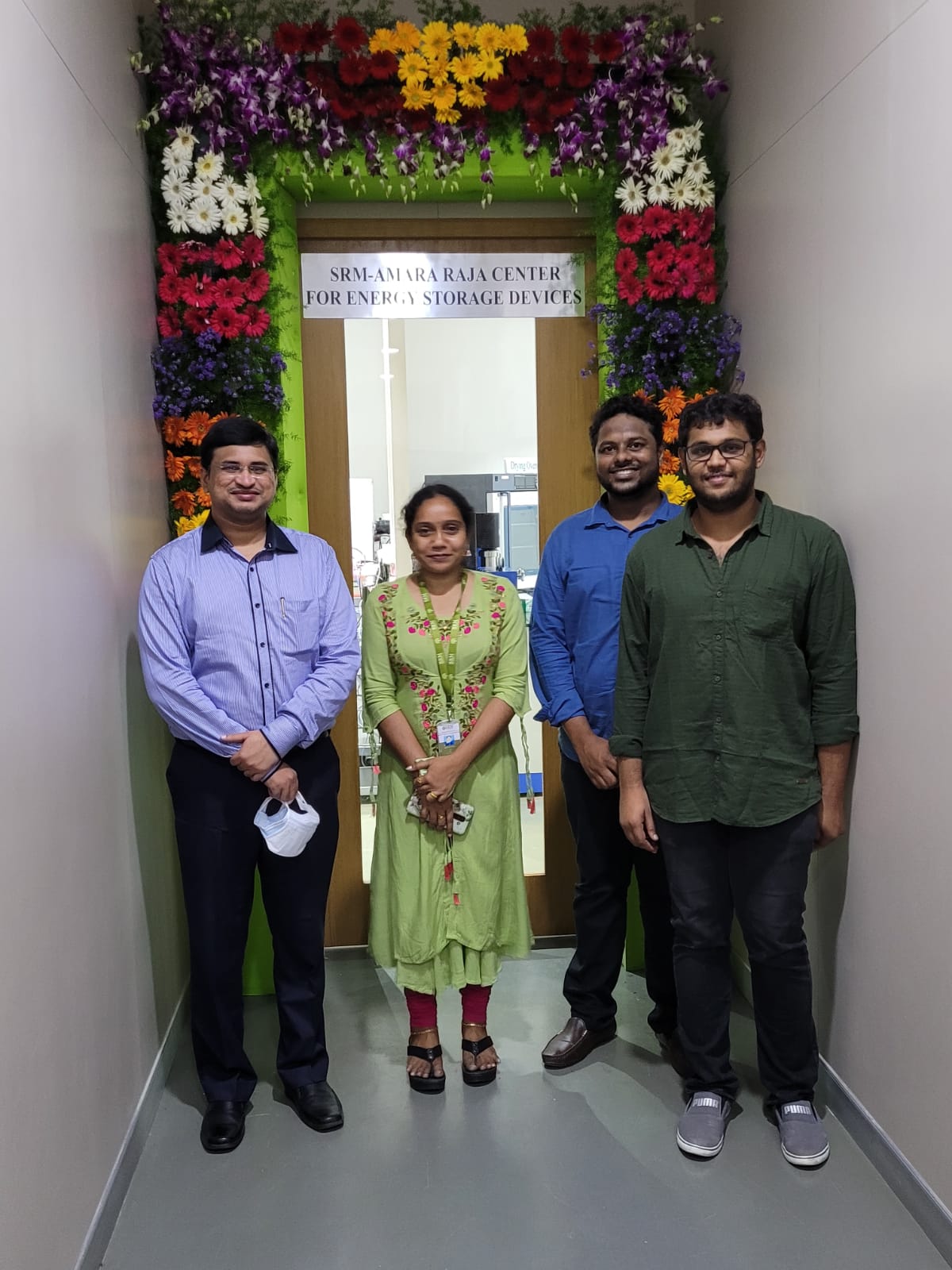 Once you are a part of SRM University-AP, we ensure that your future is secured! With the guidance of Dr Sujith Kalluri, Assistant Professor, Electronics and Communication Engineering, Mr Chanakya wends his way to Purdue University, USA, a world-renowned research university, for doing his PhD. He secured admission with a full tuition fee waiver and teaching assistantship. Chanakya Karra spent his two years DST-SERB JRF position at SRM AP and has made remarkable contributions to SRM-Amararaja Centre for Energy Storage Devices.
Once you are a part of SRM University-AP, we ensure that your future is secured! With the guidance of Dr Sujith Kalluri, Assistant Professor, Electronics and Communication Engineering, Mr Chanakya wends his way to Purdue University, USA, a world-renowned research university, for doing his PhD. He secured admission with a full tuition fee waiver and teaching assistantship. Chanakya Karra spent his two years DST-SERB JRF position at SRM AP and has made remarkable contributions to SRM-Amararaja Centre for Energy Storage Devices.
DST-SERB JRF position helped Chanakya resume his research career, which had a pause for over a year. “It fills me with immense joy to see the SRM-Amararaja Centre for Energy Storage Devices shape up with every possible equipment to conduct research on batteries. Kudos to the management and the efforts of the faculty associated with the centre,” says Mr Chanakya. He further mentioned that the research work conducted at SRM-Amara Raja Centre enabled him to write over three papers that catapulted his chances of admission.
“I would urge the students to make the best use of the opportunities available at SRM-AP and discuss their plans with the faculty. I am sure new avenues will open with the mentoring of world-class faculty at SRM”, says Mr Chanakya to the junior batches of students aspiring for a research career.
Mr Chanakya expressed his gratitude to the faculty members associated with Amararaja Centre for Energy Storage Devices- Dr Pardha Saradhi Maram, Associate Professor, Chemistry, Dr Surfarazhussain S Halkarni, Assistant Professor, Mechanical Engineering, Dr Laxmi Narayana Patro, Assistant Professor, Physics, and others.
- Published in Chemistry-news, Departmental News, ECE NEWS, Mechanical Engineering NEWS, News, Physics News
Highly efficient catalysts of Ruthenium clusters on Fe3O4/MWCNTs for hydrogen evolution reaction
“Highly Efficient Catalysts of Ruthenium Clusters on Fe3O4/MWCNTs for Hydrogen Evolution Reaction” is the latest paper published by Prof Ranjit Thapa, Professor of Physics at SRM university-AP and his PhD scholar, Mr Samadhan Kapse, in ‘New Journal of Chemistry’ having an Impact Factor of 3.591.
In this work, the chemical co-precipitation technique is adopted to produce Fe3O4 nanoparticles under an inert atmosphere and was utilized for HER studies. The Ru nanoparticles were profitably deposited over Fe3O4/MWCNTs GC electrode using electrochemical deposition technique. The superior HER activity was achieved on Ru/Fe3O4/MWCNTs in 0.1 M H2SO4 aqueous media. We have demonstrated that the synthesized electrocatalyst offers a low overpotential of 101 mV to achieve a current density of 10 mA cm-2 towards the hydrogen evolution reaction. It displays long-term durability, exceptional cyclic stability even after 1000 cycles. DFT calculations imply that the availability of both octahedral and tetrahedral sites in Ru/Fe3O4/MWCNTs with low overpotential is more efficient towards HER. It is emphasized that a low percentage of ruthenium in the prepared catalyst can be substituted as a promising HER catalyst for sustainable energy technologies.
Abstract of the paper
Producing molecular hydrogen (H2) using water provides a sustainable approach for developing clean energy technologies. Herein, we report highly active ruthenium clusters (Ru) supported on iron oxide (Ru/Fe3O4) and Fe3O4/multi-walled carbon nanotubes (Ru/Fe3O4/MWCNTs) by simple electrochemical deposition in a neutral aqueous medium. The supported catalyst exhibits good hydrogen evolution reaction activity (HER) in an acidic environment. Cyclic voltammograms (CV) in potassium ferrocyanide (K4[Fe(CN)6]) confirm MWCNTs enhance the electron transfer process by decreasing the redox formal potential. The overpotential of Ru/Fe3O4/MWCNTs and Ru/Fe3O4 electrocatalysts versus reversible hydrogen electrode (RHE) was found to be 101 mV and 306 mV to reach a current density of 10 mA cm-2 . As prepared, the catalyst displays good stability and retain its HER activity even after 1000 cycles. Further, the stability of Ru/Fe3O4/MWCNTs was studied using chronopotentiometric (CP) technique for 12 hrs and found negligible loss in the catalytic activity towards HER. To explore the role of Ru and underneath MWCNTs to improve the catalytic performance of Fe3O4, density functional theory (DFT) calculations were carried out. DFT calculations indicate the octahedral site of Ru/Fe3O4 favours HER with low overpotential. However, Ru/Fe3O4/MWCNTs is more efficient towards HER could be due to the availability of both octahedral and tetrahedral catalytic sites.
Social implications of the research
Renewable energy generation is of greater importance in the present circumstances. This is caused by the depletion of non-renewable energy sources like fossil fuels and other hydrocarbon deposits and the release of greenhouse gases into the atmosphere. Hydrogen has gained considerable interest as an energy storage and energy carrier because of its high energy density (146kJ/g). Furthermore, its lightweight, profusion nature and the release of water during its combustion eliminate environmental pollution and thus contribute to defeating the global energy crisis. Also, hydrogen is an important and ideal energy source to develop fuel cells. A number of methods have been explored to generate molecular hydrogen. Among them, water electrolysis is a promising technology for generating high-purity hydrogen from water. An excellent electrocatalyst is obligatory to liberate hydrogen gas effectively from water. A higher HER activity is known to be obtained from platinum (Pt) and Pt-based catalysts. Given its high cost and low surplus, it limits expansion to the industrial scale. Over the few past decades, lots of efforts have been made by many research teams to find out alternative catalysts to substitute Pt electrodes.
The paper is published in collaboration with Shwetha Kolathur Ramachandra, Doddahalli Hanumantharayudu Nagaraju, and Shivanna Marappa; School of Applied Sciences, REVA University, Bangalore-560064, Karnataka, India. According to the research group, the density functional theory can boost the searching process of highly promising electrocatalysts for hydrogen evolution reactions in renewable energy generation.
- Published in Departmental News, News, Physics News, Research News
Students pursuing semester abroad topped SF Hacks
SRM University-AP is indeed proud of its young and intelligent minds who continue to bring honour and glory to the institution from across the globe. Pulkit Jasti and Tankala Yuvaraj, two of our students from the Department of Computer Science Engineering currently pursuing Semester Abroad Programme at the University of California, Berkeley have won first prize in the prestigious SF Hacks conducted by San Francisco State University, USA, and bagged a total of $950 ($600 for 1st Prize, $250 for Best UI/UX Design, and $100 for Best AIML Hack).
The world has always been ruled and sustained by ideas. Innovating and executing the unthinkable are what helped us tide over the unprecedented hardships the pandemic entailed. SF Hacks 2022, San Francisco’s largest collegiate hackathon was conceived to hatch some striking ideas under the tracks: inclusivity, mental health, sustainability, and machine learning to put the latest technologies to use in the fittest way possible to render solutions to the unending maladies of corona and climate change.
Pulkit Jasti and Tankala Yuvaraj have tread out of the way to introduce an AI-based classroom system that monitors the mental-well being of the students. It is an unfortunate fact that our classrooms have often overlooked the emotional and mental well-being of the students. The transition to virtual mode has made the scenario even worse. Researches state that the depression rates in students between ages 10-18 have increased by 72% since the pandemic.
According to Pulkit and Yuvaraj, this incredible innovation monitors various parameters like facial expressions, voice, attentiveness of a student during the class and generates a meta score that gives an overall idea about the mental well-being of the student. Based on this score, the school counsellors will be notified and then the student can have a one on one therapy session with the counsellor. This system can help identify signs of depression at early stages which makes classroom a safe learning environment for students.
They were determined to come up with an effective solution to redefine the conventional classroom setup and make learning a wholesome experience. “After selecting a problem and drafting the base of the project, we were assured that it could create a positive impact for students during these unprecedented times of the Covid-19 outbreak”, they said.
“During the hackathon, we ran into a lot of technical issues and roadblocks but were able to overcome them and submit our final prototype. To be a part of such a huge event where there were around 1000+ participants from over 26 countries was indeed a remarkable learning experience”, they expressed their feeling of contentment. “We can never thank enough our faculty at SRM for their enormous support throughout our journey at the University of California Berkeley” they added.
- Published in CSE NEWS, Departmental News, News, Students Achievements
Paper presentation in International Conference on Innovations in Information Technology
Mr Mudigonda Himansh, a 3rd-year BTech-CSE student, has presented a research paper in the IEEE International Conference on Innovations in Information Technology-2022 organised by IIIT Kottayam, Kerala India, in Feb-2022. The paper will be published in IEEE Xplore (Scopus indexed). Dr V M Manikandan, Assistant Professor in Computer Science and Engineering at SRM University-AP, is the co-author of the presented paper titled “A Statistical Study and Analysis to Identify the Importance of Open-source Software”.
Open-source software has picked up pace in the past decade with support from multinational conglomerates and huge open-source communities. We hear a lot about the success of many open-source projects, but we fail to understand how many do not make it. In this paper, Mr Himansh and Dr Manikandan understand the dynamics behind open-source software. They start with the need for open-source alternatives. Then look at a few concerns open-source software developers and maintainers face. Next, we would understand the various requirements of open-source software. Later, we would touch upon the different attributes that affect the selection of open-source software and the decisions to make while building general-purpose, open-source software. Then we would analyse the 5-determinants of open-source software success. Finally, we would look at the data collected from 482 data points from 24 countries and then analyse the data by forming graphs and charts.
This research provides the required knowledge to the open-source and non-open source software developers before-during-after development and production of the software or project. “Our future work is focused on the applications and predicting the scalability of large-scale OSS with machine learning,” says Dr Manikandan.
- Published in CSE NEWS, Departmental News, News, Research News


